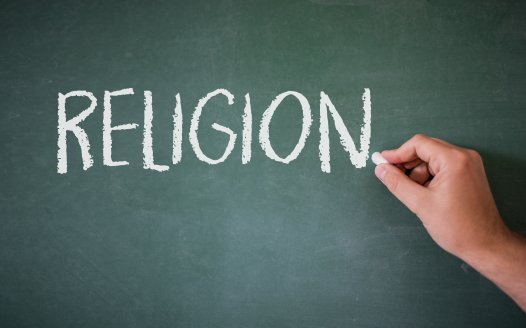The row over right of withdrawal highlights the need to reform RE
Posted: Fri, 13th Apr 2018 by Stephen Evans
Teachers from the ATL union have voted to demand a clampdown on parents selectively withdrawing their children from RE. But Stephen Evans says the right to withdraw should only be scrapped once the subject is reformed.
A teaching union warned recently that "prejudiced" parents are pulling their children from Religious Education classes because they don't want their children to learn about particular religions.
Members of the ATL section of the National Education Union voted in favour of a motion demanding action from government to prevent "racist" parents from selectively using of the right to withdrawal, claiming the practice is increasingly fuelled by antisemitism and 'Islamophobia'.
Parents and carers currently have the right to withdraw their child from all or part of RE. Our experience at the National Secular Society is that many 'selective withdrawers' do indeed have an issue with the teaching of Islam. NSS staffers have received numerous enquiries from and about parents unhappy about visits to mosques or school visits from imams, and it's clear that some requests to withdraw pupils from RE stem from bigotry. But we also regularly receive complaints from parents who are concerned about external representatives of evangelical groups being invited into schools, where they use RE as a platform to promote their own religion. Parents should have the right to know who is 'educating' their children – and the right not to have their children subjected to unwanted evangelism.
In some cases, it may also be that parents simply aren't confident that the schools will approach the subject matter objectively, and will perhaps teach Islam, and other religions, uncritically and with undue deference. RE is regarded by some as 'advertising space' for religion in schools. It is understandable that some parents many not want their children pumped with specious nonsense such as 'Islam is a religion of peace' because as most people have worked out, it's a bit more complicated than that. Islam, like other beliefs, has diverse manifestations and unless the study of religion is regarded as an objective, critical and genuinely academic inquiry, who can blame parents for being somewhat sceptical of its merits.
Proposing the motion to end the selective right of withdrawal at the NEU Conference, Richard Griffiths from the union's Inner London branch said that RE today has developed into a subject "that allows for critical thinking, big questions, allows children to explore their own and other religious beliefs and non-beliefs".
Whilst it is true that in many schools, RE is no longer the vehicle for Christian evangelism it once was, I'm not so sure the rosy situation he paints quite presents the full picture. A recent interim report from the Commission on Religious Education, which has been set up to consider the subject's future, casts doubt on RE's fitness for purpose. It says teachers are "not always clear on the purpose of the subject" and many "lack the subject knowledge necessary to teach about sensitive and crucial issues with skill and nuance". It adds that "low standards predominate across too many schools" and "pupils are experiencing a lottery in their access to high quality RE".
Even worse is that some faith schools are still permitted, indeed required, to teach RE in accordance with the tenets of their faith – a situation that fundamentally undermines RE's credibility. The subject's status is further diminished by representatives from religious communities having privileged input into the syllabus in our supposedly non-faith-based community schools.
Rather than tinkering around the edges, it would be great to see teachers demanding root and branch reform of RE. Learning about religion and non-religious philosophical worldviews is part of a balanced education and pupils are being short-changed by the reluctance to wrest the subject away from religious interests. In fact, until we learn how to approach religion objectively in schools, there's a very good case for extending the right of withdrawal from RE and collective worship to pupils, too.
So whilst it is right in principle that parents shouldn't be allowed to pick and choose what subjects their children are taught in schools, the parlous state of RE and the religious exceptionalism that characterises it makes the right of withdrawal – even partial withdrawal – a necessary evil for now.
No more faith schools
We need inclusive schools free from religious discrimination, privilege or control. Join our campaign.








